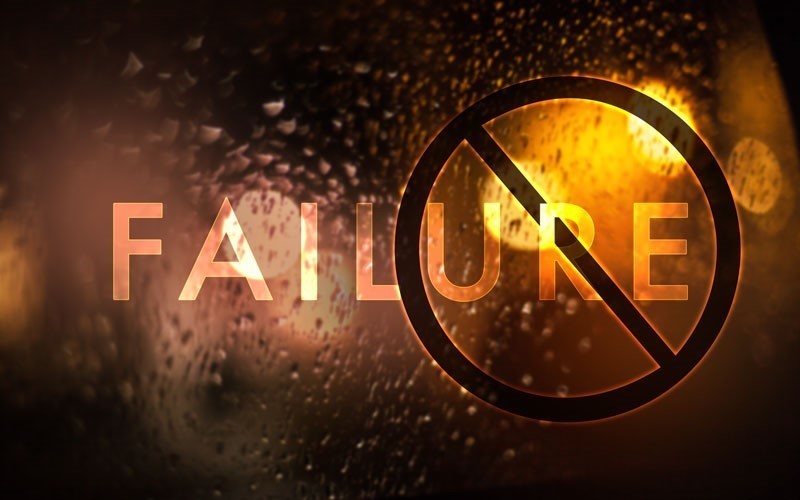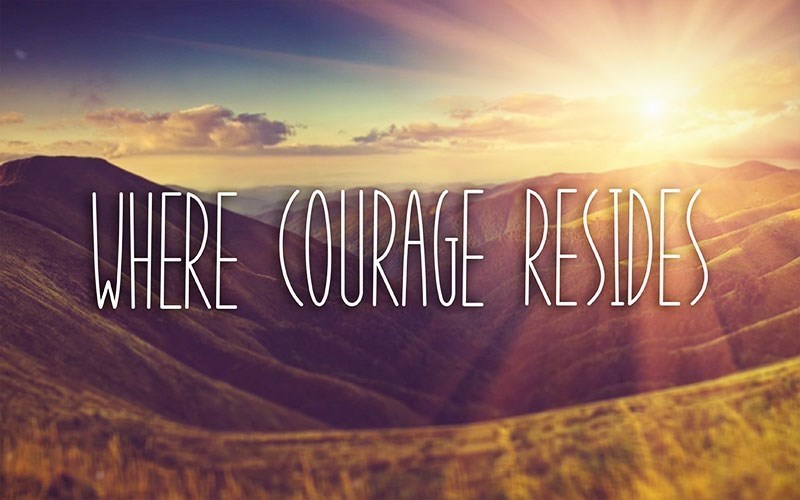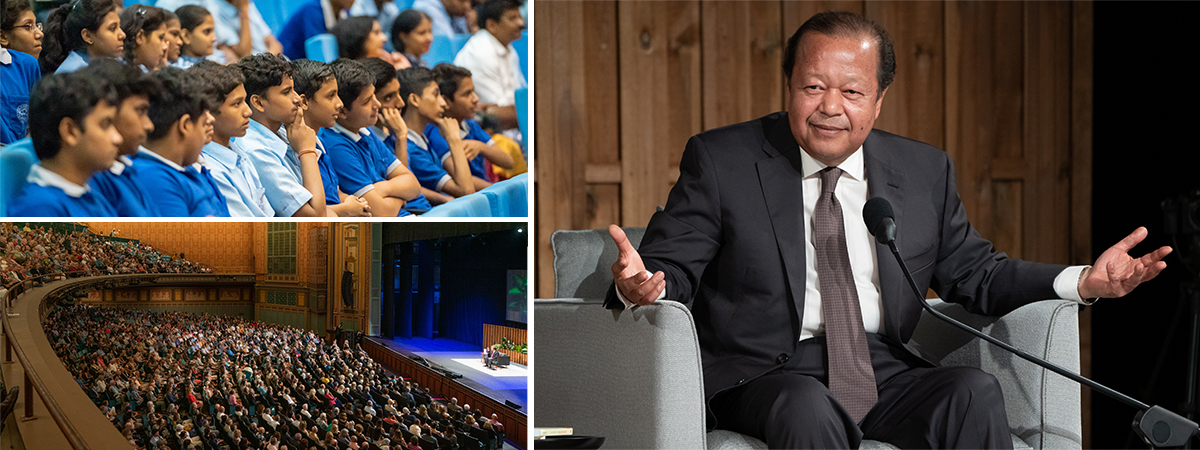Topics
 00:05:59
Courage's Purpose
Video
Duration : 00:05:59
In those moments where it seems hopeless, courage is needed to find the hope. An...
00:05:59
Courage's Purpose
Video
Duration : 00:05:59
In those moments where it seems hopeless, courage is needed to find the hope. An...
Prem Rawat
You can go out and engage with the world normally and every moment that you engage the world, you can then see the difference of what it is like to be with you and what it is like to be with the rest of the world.
And in my opinion that is a very big distinction you should always remember. Because the world promises you everything and offers you nothing. Promises you everything. The inner wisdom even without promising anything, gives you everything. No promises need to be made. Here it is, here's the gift. Take it. Use it. Avoid the hazards of this world. Be in synch with your existence.
Recognize the divine within you. You giving up is the worst thing you can do. This is where you need to know yourself because you need to know about your courage. This is what the courage is for. In those moments where it seems hopeless courage is needed to find the hope.
And there is hope. There's always hope. Just remember that. Just remember that. Yes, you will be faced against challenges in your life that seem unsurmountable. But your outlook has everything to do with it. If you're already hopeless, if you've already lost everybody will abandon.
Be careful. Take care in being alive. In understanding, in accepting. In embracing. Embrace the right thing and you will have good result.
Water the plants, not the weeds and you will have a good yield. If you water indiscriminately it doesn't work. Water the plants, not the weeds. Know the difference between `the plant and the weed. This is what it is all about.
People want to control their mind. They've been trying for so long. You know how long? People have been trying to control their mind for thousands of years. Have they been able to do it? Absolutely not. They don't even get the clue that maybe it can't be done.
Recognize. Recognize who you are.
There is something very profound you can do. You can fill yourself with joy. You can fill yourself with clarity. These are things you can do. Can do.
 00:02:23
The Reward of Hope
Video
Duration : 00:02:23
Anger rewards anger; anger begets anger. But what is the reward of hope?
00:02:23
The Reward of Hope
Video
Duration : 00:02:23
Anger rewards anger; anger begets anger. But what is the reward of hope?
Many people in their lives, they see things not going their way; they start losing hope, and the next thing you know, calamity. But it takes courage to have hope; it takes courage to have clarity. And when there is that courage....
This is what’s beautiful. If you get angry, you know what you will be rewarded by? Anger. Just think about it, right? You get angry; you’ll be rewarded by anger. What is the reward of anger? Either you will get more angry.... Maybe, maybe you begin by being angry with your friend, and the next thing you know, you’re also angry with yourself—for being angry at your friend.
Anger rewards anger; anger begets anger. Fear rewards fear. You get afraid of being afraid—and that’s when it really sets in. It’s more than the boogeyman in the closet. Now, you’re afraid to be in the room; you’re afraid to be alive. “Oh my God....”
But...but what is the reward of hope? It brings you more hope. What is the reward of joy? It brings you more joy. What is the reward of happiness? It brings you more happiness. What is the reward of knowledge? It brings you more knowledge. What is the reward of being content? It brings you more contentment. What is the reward of knowing? It brings you more knowing.
This is how it is. This is how it’s always been.
– Prem Rawat
 00:08:55
Four Simple Things
Video
Duration : 00:08:55
Those who have courage and strength can have gratitude.
00:08:55
Four Simple Things
Video
Duration : 00:08:55
Those who have courage and strength can have gratitude.
What is important for you as a human being? One, “Know thyself.” Absolutely. You cannot afford to be a stranger to you. You can afford to be a stranger to other people who do not know you, but you cannot afford to be a stranger to you: “Know thyself.”
Secondly, you need to have a heart full of gratitude. Be thankful—thankful for what? For very simple things, very simple things—like being alive. So, could you begin by being thankful for being alive? Could you—in your moments of frustration could you be thankful for this breath? It’s still coming. Do you know that when you are angry, the root of your anger is fear? To remove the anger, you have to remove the fear and to remove the fear, you have to have courage. So, courage is what will get rid of the anger!
So, can you have gratitude? Only those people who have that courage, who have that strength can have gratitude—“Thank you. Thank you.”
People—I say to people; I said, “Be thankful,” and they go “to whom?” Then you don’t know how to be thankful. Just be thankful. Not to whom.
When you look at a beautiful rose, do you go up to it and say, “Are you beautiful for me?” No. That rose is beautiful even if nobody’s looking at it. And that rose is beautiful if it’s a criminal looking at it. And the rose is beautiful if a saint is looking at it. And the rose is beautiful if you’re looking at it.
Gratitude: number two. Number three? Noise. So, have you heard this saying? It goes, “You don’t need wings to fly. You don’t need wings to fly. All you need to do is cut the ropes that hold you back.” Have you heard this? So, where are the ropes? The ropes that hold me back are in my head.
And what do they look like? They look like noise. What is the noise? “You should do this; you should do that.” Words that are not yours—other people’s words that echo in your head... . “Oh, yeah, but if you do this, you will go to hell!” “Oh, but you want to go to heaven... . You want to go to heaven... .” Do you know what heaven looks like? If you didn’t recognize the heaven here? How will you know you are in heaven when you are in heaven?
The question isn’t, you are flying, my friends—the question isn’t, you are flying—the question is, are you on the right airplane? So, do you know what heaven feels like? Because heaven is here. And if you don’t recognize it here, you’re not going to recognize it anywhere else.
So far you are here, your heaven is here; your hell is here. What is heaven? Heaven is the place where you are fulfilled. What is hell? When you are not in heaven. Simple! What does heaven feel like? It feels heavenly. It’s in you; it’s in you; it’s in you; it’s in you.
Fourth thing. The last thing. You can fail, but don’t accept failure. So, you’re going, “What does that mean?” Right? When you were a baby, and you were learning how to walk, did you fail? Every time you fell you failed. Right? But did you accept failure?
You never—you failed, but you never accepted failure; you got right back up. “Ha-ha-ha-ha.” Right? Till one day you learned how to walk—that’s how you learned how to walk. You failed, but you did not accept failure. Now, look at you. A little failure, “Huh...”
So, you can fail, but don’t accept failure. Do those four things in your life, please. Do those four things: “Know yourself”—you want to know yourself? I can help you. I can help you. “Be thankful for this life; be thankful for the breath.” And then, “Cut the ropes of noise.” "Fail, no problem. But don't accept failure." Do those things and you will see a big difference in your life.
- Prem Rawat
 00:07:27
Quieting the Noise
Video
Duration : 00:07:27
You actually get to create your own internal playlist. What do you want to hear?
00:07:27
Quieting the Noise
Video
Duration : 00:07:27
You actually get to create your own internal playlist. What do you want to hear?
MC and host: [Sara Powell]
I just want to get straight stuck in if I may. Something that we’ve had a couple of questions about, and something that really spoke to me from what you said, was “the noise”—that chatter that is constantly there. And I wondered, “What’s the best strategy for coping with it? How do we quieten it down, the noise?”
Prem Rawat:
Well, these are the questions you have sent—I mean, over 200 questions came in—and some of you who have, probably, cell phones that are from different countries, probably are still coming in through, you know, because they go round robin, yeah....
MC:
Yeah, you’ll be getting them till Wednesday, yeah!
Prem Rawat:
And, yeah, exactly. So, the question is, where does this noise come from? I mean, who is the perpetuator of this noise; who is the generator of this noise, and where is the stage that it ultimately plays out on?
So, the stage where it ultimately plays out on is you! But where does it come from? Well, it is something that started a long, long time ago, right from your parents.
Because, whose voices are there? They are included too, and the friends are included, and the boss, and the friends, and the friends of the friends, and the, everybody who has two-cents-worth of advice, and it just gets recorded,
But then the question becomes, “Why did it get recorded? Who had the record button pushed in?” Right? And we allow this to happen. We don’t think we have a choice. Because we don’t live our lives by that tactile feel.
I was watching a show where they were showing this person who was challenged with the sight. And as he moved around the room, he had to feel everything—and where it was and how it was—and there were no assumptions.
And we, the ones who have eyes, are most likely to have that chair pulled out from underneath us or even miss the chair. But not this man, because he knows he has to have that feel. Every step that he takes in his life is taken deliberately. Not just, “Uh, let me see what’s over there.” Do we live our lives like that?
You know, and maybe the noise is a consequence of living a very unconscious life. That if there was a conscious life, then you would say, “Okay! Since I have a tape recorder....” Don’t fault the tape recorder, by the way. That’s really good that you have a tape recorder. It’s the content of the tape recorder that’s bad.
“So, can I put in nice stuff? If I’m going to have noise, let me have some really lovely noise, something that inspires me, something that gives me courage....” Because we all need courage. That’s why courage is there—hmm—because we need it!
Because in life, the mountains that you have to sometimes cross, that we have created for ourselves, are no ordinary hills. Mind you, they are indeed mountains of extraordinary proportions, and it requires nothing shy of courage to even take on the challenge to do so.
So, you know, this is, in a way, what I do. Because, you look at the Peace Education Program—and when it goes to the prisons, their voice, their tape recorder is going, “I am here, and it’s the fault of that person, and that person, and that person, and that person.”
And they go through the Peace Education Program, and they start to realize, “Hey, look at yourself.” And when they do, then they realize that they are standing at a threshold where they can change.
And it is no mistake or an accident that people who go through the Peace Education Program—at least, the inmates who go through the Peace Education Program—have the lowest rate of return back into the prisons.
So, we’re not inmates, are we? I mean, we’re not in a prison system, are we? The prison system you are currently in.... The other prison system, they’ll get out after two years, three years, four years, five years. The prison system you are in, you don’t get to get out till you die—sorry. Huh! You’re in for life.
Folks, it’s really time to start creating your heaven, because there are no options here. The wall is there—and there are no options! And getting rid of that noise and putting the nice noise on is up to you. It truly is—because you’re the one who is doing it: who’s buying into this noise and keeps: “Ah, push play again, please.” And, you know, and has it on “repeat,” so it just keeps repeating and repeating and repeating and repeating.
Life has the possibility of creating your own playlist—your playlist that you like. Do you want to accept that challenge? You know, the issue isn’t just the noise. We can replace it with something beautiful, something wonderful, something you like. Not what I like—you like! Because I want to create my playlist of something I like. You create your playlist, something you like.
- Prem Rawat
 00:04:51
Fail and Failure
Audio
Duration : 00:04:51
“Don’t associate failure with failing.”
00:04:51
Fail and Failure
Audio
Duration : 00:04:51
“Don’t associate failure with failing.”
In our lives, one of the things we do is we accept failure very easily, very quickly. Because there is one thing which is failing, and then there is the failure.
So, failing will happen.
There was a time in your life where failing didn’t mean anything. It was acceptable; it was normal. And the part of your life where this happened was when you were learning to walk. So there you were, coming from a place, from a time in which language didn’t mean a whole lot.
So, nobody indoctrinated you into this; nobody gave you a lecture about this; nobody —do you know—you didn’t go out and read some scripture, but you had an urge to walk. And this came from inside of you, and there was no question about it—you wanted to walk!
But you were extremely ill-equipped to walk. You had two legs, but the muscles in that leg that needed to carry you were not developed. You needed a sense of balance. And you didn’t really understand it. And so, a day came in which you made this attempt to get up. And anybody could have told you what was going to happen.
It was not a happening thing. You were going to fall—and you did! And you failed! You…you actually failed—because the first, first part is just getting up. But you kept going—and you would fail! And you would fail, and you would fail....
And finally you got to the point where you could actually get up. And as soon as you got up [demonstrating, wobbling] there was still going to be failure! You were going to fail again. Because now the whole sense of balance starts to kick in, and stabilization, and you know, the nerves are telling the muscles, “Do this, do....”
Because everything is an overreaction, underreaction. Nothing is used to anything—and you are doomed to failure.
But you weren’t a failure because you never accepted failure.
And so you took that one little step, and boomf! You failed—bam! And sometimes the kids even look at the mother, “Should I cry?” You know…you…you—they get to, right to that point of where their bottom lip is quivering and everything, and they’re like... And the mother looks like, “Oh, it’s okay, it’s okay”—it’s like, “Oh, it’s okay.” Brainwashing!
But you just kept failing and failing and failing and failing and failing and failing. Till one day, because you did not accept failure, you did the impossible, and you took that step. And then the next step. And all of a sudden the most incredible transformation took place. And what you just accomplished wasn’t walking. You unlocked the world to yourself. Krrrract! Now you could go wherever you wanted to go. You were free.
So, “fail” and “failure” meant two different things.
Then as you grew up, you started to associate the two; you merged the two. “Failure is always painful—demeaning and painful.” And all your life, your energy turned into “not failing.” So that no failing happens in your life, you would have to become non-human. Not going to happen! You’re human! But there is a way out of this pickle. And the way out is, “Don’t associate failure with failing.”
-Prem Rawat
 00:04:39
Where Courage Resides
Video
Duration : 00:04:39
You don’t need fear; you need strength; and it is already within you.
00:04:39
Where Courage Resides
Video
Duration : 00:04:39
You don’t need fear; you need strength; and it is already within you.
You have a mind and you have a heart; you’re balanced. If you learn how to use both of them equally, not only will you be in peace, but you will prosper. Most people only know how to use one. The heart, they don’t understand.
I say “the heart,” and people go, “What are you talking about? What is this thing called the heart?” But let me tell you what it is. The heart is the place where the courage resides, the courage to move on, to go forward, to fulfill who you really are.
The heart is the place where your truest wisdom resides. The heart is the place where you will find your passion. The heart is the place where you will find your compassion. The heart is the place where you will find the quest, the thirst for being fulfilled.
All that is good in you—not from the perspective of the world, but that is good in you from the perspective of a human being—is the place where all these beautiful things reside. And that is the place referred to conveniently as being the most important, and thus called “the heart.”
That’s what a heart is. The courage. The courage to seek clarity in the midst of confusion. When everything is going wrong, the courage to say, “No! I want clarity; I want to be fulfilled.”
Have you experienced this courage? Have you felt this courage? Have you understood this courage? It’s your power to thrive in this world—to thrive, to shine, to be.
You don’t need fear; you need strength. And the strength that I am talking about is inside of you. Knowledge of the self, of you! So you can understand, so you can see, so you can feel, so you know.
To welcome every single day like you will not get another one—and that’s when every day starts to become a gift.
– Prem Rawat





